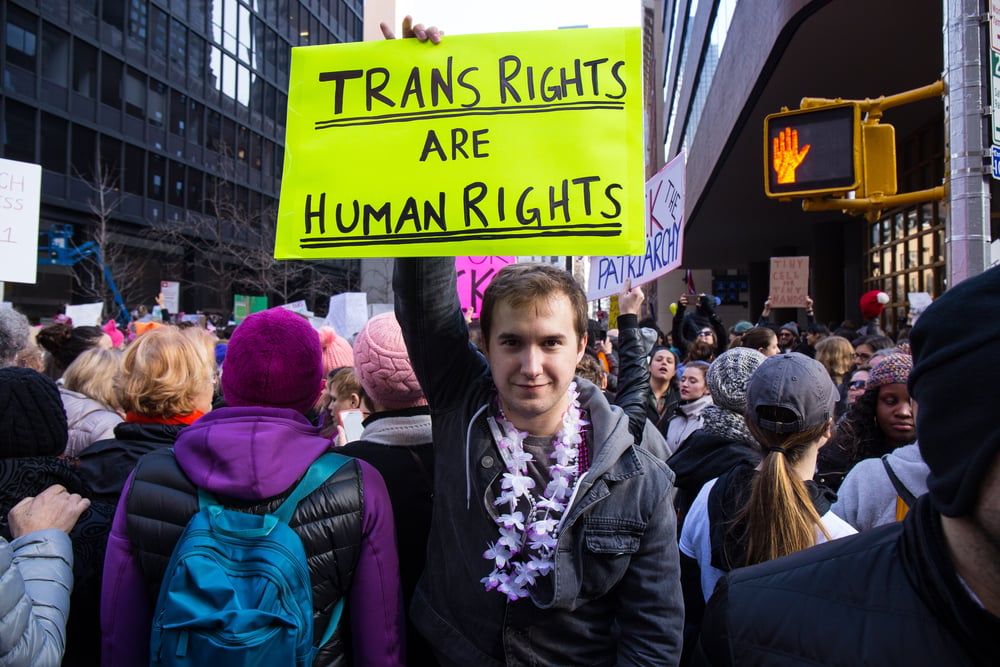Last month the New York Times reported that the Trump administration might implement a definition of gender as an immutable, biological condition determined at birth by genitalia. The very existence of 1.4 million transgender Americans indicates that gender is far more varied and complex than this narrow definition, which would legally erase the identities of transgender citizens.
This potential change would revoke previous policy created under Barack Obama and devastate transgender people in the United States. It would make addressing human rights violations and hate crimes nearly impossible, and would affect access to health care, insurance, public spaces, schools and travel and more.
Behaviour is contagious, and in Canada we too are beginning to witness Trump-style politics. Take Ontario Premier Doug Ford for instance, who ousted the LGBTQ2+ positive Liberal leader Kathleen Wynne this past June. This month at the Ontario Progressive Conservative convention, party members approved a resolution to hold discussions on deeming gender identity a “Liberal ideology” and have it removed from the sex-education curriculum.
A majority supported the call to debate the issue at the party’s convention next year. Ford has since said that he will not be moving forward with the proposed policy, though some are asking if it is within his scope of influence to prevent the debate.
This summer, Ford repealed the health and physical education curriculum introduced in 2015, which addressed issues such as sexual orientation and gender identity. It was replaced by the 2010 curriculum, which includes sex-ed material that is 20 years old.
Meanwhile in British Columbia, the BC Liberal government amended the provincial Human Rights Code to add gender identity and expression as a prohibited ground of discrimination. A few months later, the education minister announced that all school boards and independent school authorities were required to reference sexual orientation and gender identity (SOGI) in district and school codes of conduct.
SOGI 123 was created to help foster the inclusion of lesbian, gay, bisexual, two-spirit, transgender, asexual and other queer students and their families in schools. Despite some controversy and protests, SOGI 123 is helping to foster more inclusion and safety in schools.
This month in B.C., the government said people who do not identify as male or female will have the choice to display an X as a third option in the gender field of their birth certificate, driver’s licence and BC Services Card. (Last year, the federal government announced Canadians would be able to have an “X” put in place of gender in their passports.)
The NDP-led B.C. government also recently announced that transgender people would soon have access to publicly funded gender-affirming lower surgeries within the province, as B.C. becomes the first province in western Canada to offer these procedures next year. The province will also increase the number of surgeons providing gender-affirming chest and breast surgeries.
B.C. also took the first legislative steps to re-establish the provincial human rights commission. The proposed amendments would create an independent human rights commissioner who would examine discrimination in B.C. and develop tools for educating the public about combating inequality.
Last year, Bill C-16 became federal law. It adds gender identity and gender expression to the list of prohibited grounds of discrimination in the Canadian Human Rights Act and related protections in the Criminal Code of Canada.
Let us remember not to take these new rights for granted for they can also be quickly eroded. The reality of this world is one where transgender people are still brutally murdered, beaten, sexually assaulted, verbally abused, harassed, denied services, employment and housing, lose friends and family, have trouble safely accessing medical care, women’s shelters and rape crisis centres, food banks and overnight shelters, and bathrooms.
This is still a world where a high number of transgender people – especially youth – attempt suicide, end up on the streets, have higher risks of addictions and mental health challenges.
And this is still a world where, with a change of government and a lack of understanding coupled with fear, identities can be put on the chopping block.
The pushback we are witnessing is likely a reaction to progress that is happening. How can we as civil society continue to grow and learn rather than regress and oppress?
Let us remember that our actions, as small and insignificant as they may seem, have reverberations far beyond what we can imagine. And that by supporting, standing up for and educating one another, we can help save lives and make a more bearable future for all. ![]()
Read more: Rights + Justice, Gender + Sexuality
















Tyee Commenting Guidelines
Comments that violate guidelines risk being deleted, and violations may result in a temporary or permanent user ban. Maintain the spirit of good conversation to stay in the discussion.
*Please note The Tyee is not a forum for spreading misinformation about COVID-19, denying its existence or minimizing its risk to public health.
Do:
Do not: